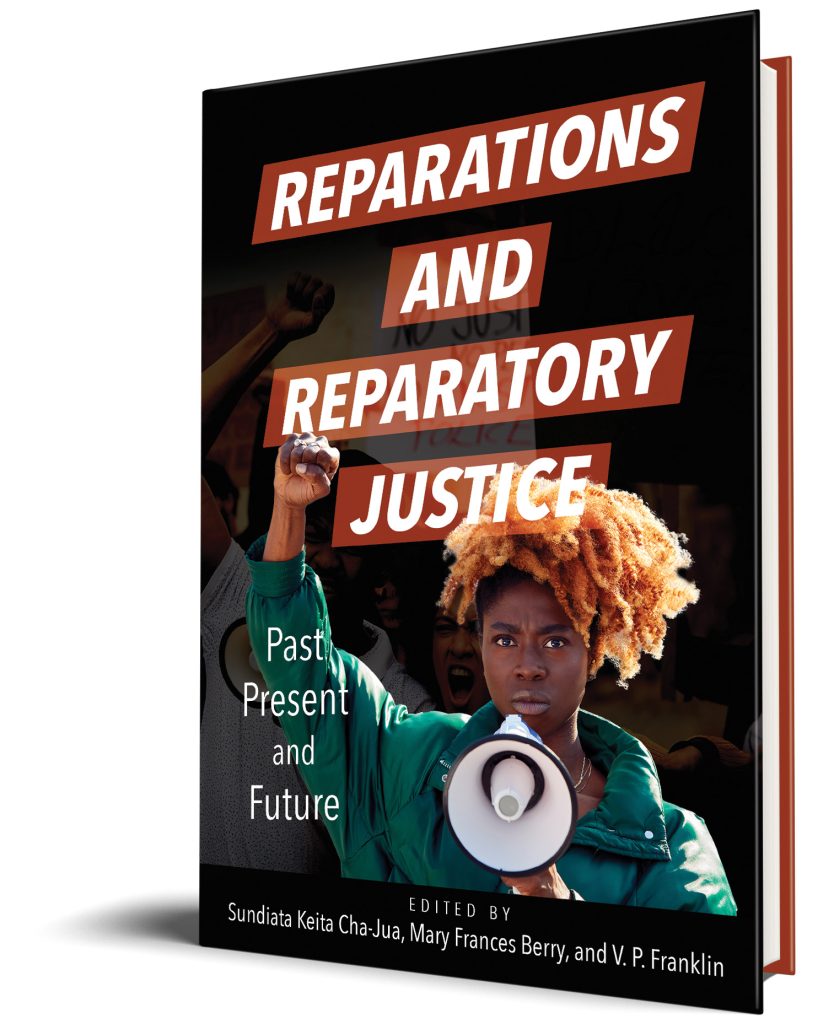Mary Frances Berry, co-editor with Sundiata Keita Cha-Jua and V. P. Franklin of Reparations and Reparatory Justice: Past, Present, and Future, answers questions on their new book.
Q: Why did you decide to write this book?
I decided it is important to make the original sources and disparate perspectives on reparations and reparatory justice widely available to students, scholars and the public.
Q: What is the most interesting discovery you made while researching and writing your book?
The demand for reparations has been long-standing and a persistent part of the history of slave descendant blacks and has long inspired other demands for reparative justice.
Q: What myths do you hope your book will dispel or what do you hope your book will help readers unlearn?
The myth that blacks saw themselves somehow benefiting from slavery. Also, the myth that slavery was a benign institution and discrimination since abolition has no influence on the economic deprivation many blacks experience.
Q: Which part of the publishing process did you find the most interesting?
Collecting the information.
Q: What is your advice to scholars/authors who want to take on a similar project?
It is well worth it and such projects serve wonderfully to illuminate the history of controverted topics.
Sundiata Keita Cha-Jua is an associate professor in history and African American studies at the University of Illinois Urbana-Champaign. He is the author of America’s First Black Town: Brooklyn, Illinois, 1830–1915.
Mary Frances Berry is the Geraldine R. Segal Professor of American Social Thought Emerita and emeritus professor of history at the University of Pennsylvania. Her thirteen books include History Teaches Us to Resist: How Progressive Movements Have Succeeded in Challenging Time.
V. P. Franklin is a Distinguished Professor Emeritus of history and education at the University of California Riverside. His eleven books include The Young Crusaders: The Untold Story of the Children and Teenagers Who Galvanized the Civil Rights Movement.

